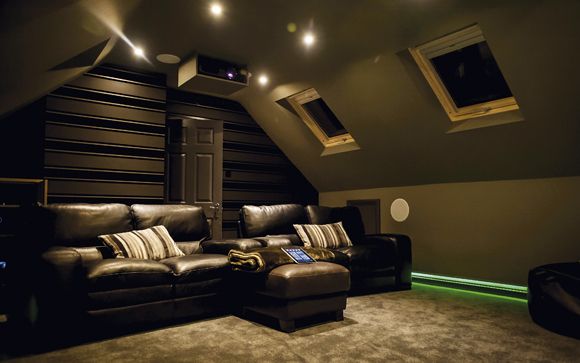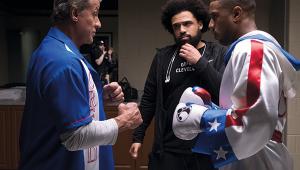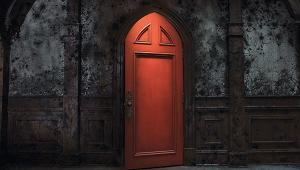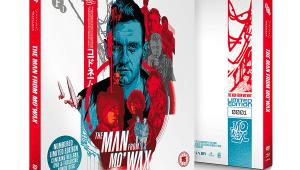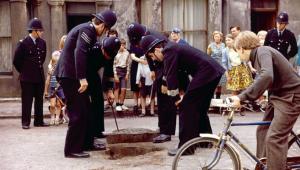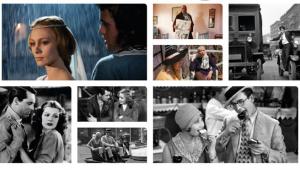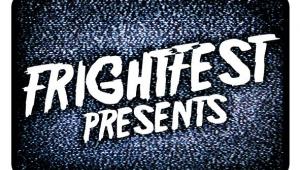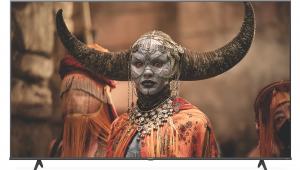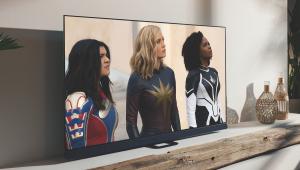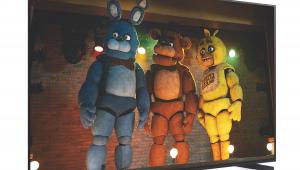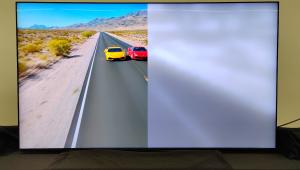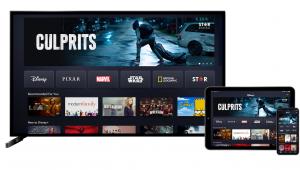Blu-ray secrets with the BFI
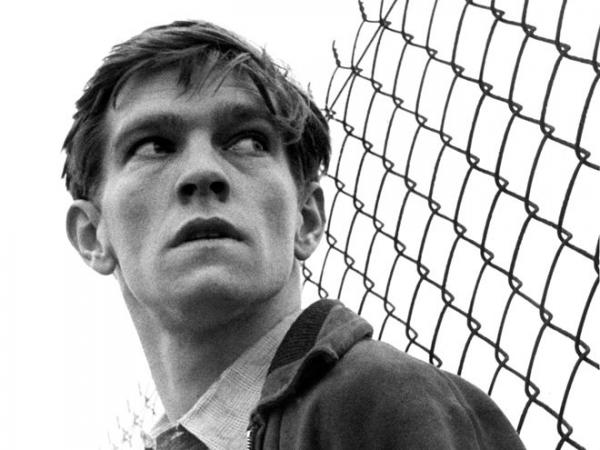
This Summer the British Film Institute is celebrating the 60th anniversary of groundbreaking British film studio Woodfall Films. Arriving on June 11 the nine-disc Woodfall: A Revolution in British Cinema Blu-ray and DVD boxsets boast eight of the studio’s most revered films – Look Back in Anger, The Entertainer, Saturday Night and Sunday Morning, A Taste of Honey, The Loneliness of the Long Distance Runner, Tom Jones, Girl with Green Eyes and The Knack… and How to Get It – plus a huge array of special features and an exclusive 80-page book.
Anton van Beek sat down with Ben Stoddart, Business and Operations Manager at the BFI, to discuss the Woodfall boxset, the future of the Flipside imprint, 4K Blu-ray – and much more…
The Woodfall boxset features key films from British New Wave cinema, films that many people will recognise the names of – and yet people don't necessarily know the Woodfall name. Why?
 That's a very valid point. One of the key things that we are trying to address is that this is very much a celebration of Woodfall. It's Woodfall's 60th anniversary. And there is quite a lot of variety amongst it, there's a lot of mixture in there.
That's a very valid point. One of the key things that we are trying to address is that this is very much a celebration of Woodfall. It's Woodfall's 60th anniversary. And there is quite a lot of variety amongst it, there's a lot of mixture in there.
I think people often associate distributors and production companies with making the same kind of film consistently. You know what to expect, because that's what they do. The modern day example is Marvel. I think the reason DC seems a bit all over the place is that Marvel has this incredible consistency; you know exactly what you're going to get. You don't expect to get thrown a curveball when you go to see a Marvel film.
What was brilliant about Woodfall, but which also means that it's maybe not as well known as it should be as a company, is that it really mixed it up. You look at Look Back in Anger in 1959 and then you look at Tom Jones just four years later, and they're radically different. One's black-and-white and about the working-class, then you've got this quite bawdy, Technicolor film about completely different types of characters. Albert Finney in Tom Jones and Richard Burton in Look Back in Anger are not comparable.Yet there's only a few years between those films, and it's the same company and the same director [Tony Richardson].
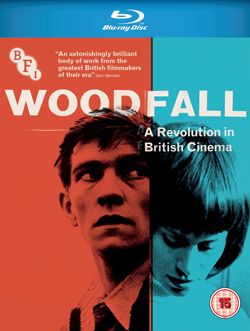 Because of that Woodfall doesn't have a real identity. It wanted to do different things. It wanted to challenge different areas. Tony Richardson wanted to make different kinds of films. I think it was Vanessa Redgrave who said that Richardson showed England as it was, from top to bottom.
Because of that Woodfall doesn't have a real identity. It wanted to do different things. It wanted to challenge different areas. Tony Richardson wanted to make different kinds of films. I think it was Vanessa Redgrave who said that Richardson showed England as it was, from top to bottom.
That's why this boxset, this entire thing, is important. It's shining a light on Woodfall and its importance in British cinema. I think you've got to go back to Ealing for a production house, a studio, that had a real impact that changed British cinema quite as much. While both made very successful films, Ealing Studios had a more recognisable 'brand' of sorts.
A lot of the films were previously distributed by MGM, and one of the reasons this boxset has happened now is because Woodfall has bought the films back. One of the key things was that it wanted to safeguard its films; to make sure they were treated properly, and to get them restored. Apart from Red White and Zero (digitised by the BFI as part of Unlocking Film Heritage) and The Knack...and How to Get It, which MGM scanned, there were no HD masters available.
I notice that a personal favourite of mine, The Hotel New Hampshire [1984] hasn't made it into the boxset. Is that because the rights weren't available, or some other reason?
At the time that we were in discussion with Woodfall it wasn't available. There wasn't a very good master of it; it wasn't one of the ones that they'd gone back and restored yet.
Woodfall is continuing its pursuit of other films it produced, which are predominantly with MGM, including that one I think. If it can do a similar kind of deal and get those films back under the Woodfall banner, it would be free to go and really look at them from a technical perspective. And if that happens, then they could potentially be made available – and I know Woodfall is very keen for us to do more.
On a personal level, I would love to do Charge of the Light Brigade. It's a very troubled film, in the sense that there are lots of different cuts that happened to it. The DVD that the BFI released [2004], before my time, was not good. It was then done by StudioCanal and that wasn't that great either. A lot of the cuts to it have been about horse-tripping and things like that, which are always going to be cut by the BBFC, unless you can provide evidence that wasn't the case. But it's a bit of a minefield, and I think it's one that would benefit from being really investigated properly. I suspect there are other materials around; I'd love to know what Woodfall may hold on that film in its own archive.
Would you include different cuts, or simply go for the most complete version?
I would always endeavour to present different cuts, if they are available. We're doing that with Tom Jones, which Criterion has done in the States and we're taking the same approach in our boxset of offering both cuts. Incidentally both have now been passed uncut by the BBFC for the first time.

For major studios, home entertainment release schedules are fairly straightforward. But how does the BFI decide which titles to pursue for release?
There are often quite a lot of suggestions from around the organisation. But it's changing now, to a degree, where there's a desire to try and do quite BFI-wide projects. That's to say, something happening at BFI Southbank, something that can then also be exploited on BFI Player, as well as on DVD and Blu-ray. It's about looking at projects that can tick all of those boxes. You can give something a massive push if you've got everyone pulling in the same direction and backing the same project.
This was something that really worked when we did the Alan Clarke boxset in 2016. The DVD/Blu-ray department was the lead on the project, and then other parts of the BFI asked if they could get onboard with it. BFI Southbank did a whole season, which allowed them to show some material that we weren't going to be able to include in the boxset. And we were able to do stuff on BFI Player.
We've always been linked to what BFI Southbank is doing, we never see ourselves as a separate entity that just does whatever we want to do, but the Clarke boxset made us wonder if we couldn't do it more. It's very difficult with a lot of stuff, because with a lot of seasons at BFI Southbank there just aren't the films available for us to licence.
For example, when we had a Jean-Pierre Melville season there, these were films we used to have on DVD many years ago, but they're now at StudioCanal. I wish we still had them in the catalogue, but you can't just go and get those films back again. We couldn't do anything to majorly tie-in with that season.
What about the mix of feature film and documentary material?
Personally I think we should be looking at a third non-fiction, a third British fiction and a third international. Sometimes there's more of one than another; there are years when we've done a lot more British stuff than we've done in the previous year. Other times it's been more world cinema dominated. It depends on what's available to licence, what catalogues might come up. I think the year where we did Alain Robbe-Grillet, that boxset was six films, we also did the Werner Herzog set which was 18 films. So that was a lot of world cinema across just two projects.
It's all about striking a balance. I think that's a phrase that really sums up the BFI. It is sometimes about, and I hate the phrase, ticking certain boxes as well. There has to be a diversity, there has to be a good mixture of product. We can't just do studio deep-catalogue, such as someone like Powerhouse/Indicator, who I love. We couldn't do that lineup of titles because it isn't really what the BFI is about. It would just be: ‘What's the BFI doing? Why are they not representing the cross-section of this country and instead doing lots of American stuff?'
So you'll release a title that won't be a big seller and you'll follow it with something bigger to make up for any financial shortfall?
Yes. I do projections for everything we release. I'll say: 'Look, I'm not going to lie to you. I'm not going to say that these numbers aren't saying to me what they're saying to me. But I understand why it is we should be doing something like this, because we are the only ones to really do it.' And we'll do it to a level that is a very high standard.
The Derek Jarman boxset is a case in point, in a sense. Jarman is a niche filmmaker. Caravaggio has sold very well over the years, but that is a much more accessible film than, say, The Angelic Conversation. With Caravaggio you've got Tilda Swinton, Dexter Fletcher and Sean Bean – actors who people will say, 'Oh, I've actually heard of these people.'
If anybody is going to do a Jarman Blu-ray boxset, with great extras and a book, then it's the BFI. I mean, he's intrinsically linked to it, having funded a lot of his films. We hold his paper collection in the BFI National Archive. So we have unprecedented access to a lot of his work.
I remember looking at these numbers a few years ago and I said: 'Look, I think if we make it limited edition and do something special with it, it will do well enough that we can justify it from a financial perspective.' But I'm not going to sit here and say it's gonna sell 5,000 copies. It's not going to do what a Hammer will do. It's not going to do what a Hellraiser boxset will do.
But if we don't do it, it's going to get to the point where no one's going to release these films properly and they're only going to exist as really old, poor DVDs. This was the moment to pay a bit of money to do them properly, to get some great extras. And the reaction's been fantastic.
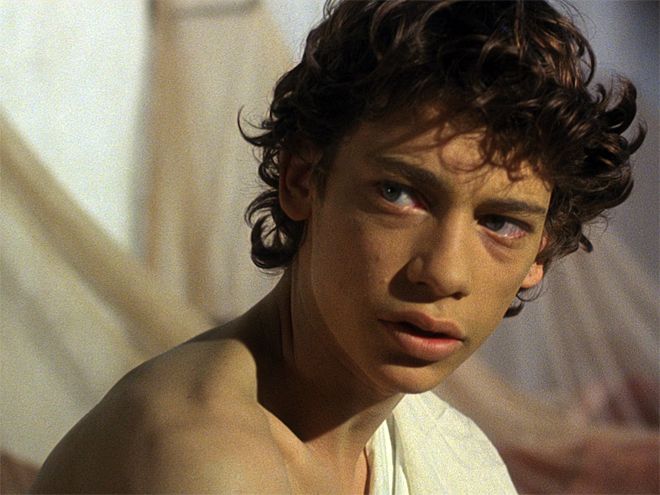
Of course, when you lavish care and attention on a set like that, you're also going to attract consumers who might not have otherwise paid attention...
I think so. If you look at the labels that are doing well and are still around, and new labels that have appeared, there is something that unites all of them and that is the quality of the releases. You can't just bang these titles out, whether it's the most niche thing in the world or the most commercial thing in the world. It might be a new 2K master or 4K master, but you can't just slap it on a disc and say 'There you go…' and charge people £15 for it. They'll just say, 'You're charging me £15 for this, but Arrow are charging me £15 for a disc with two hours' worth of extras, a booklet and it's a really nice-looking release, and they've gone back to the original negative.'
With the Jarman set, if we'd done a DVD-only release, with only the extras from the old discs and nothing else, and a booklet, not a book, then the people who have been waiting for these films to be treated with the respect they deserve would have thought we'd dropped the ball. So we only did it on Blu-ray – I just don't think the audience for the set are DVD people. These are people upgrading to a Blu-ray. They want these films and, like you said, if you do it right you're gonna attract people who might have looked at some of the old ones and gone, 'These are really tired now. They don't look good.'
The audience for our stuff, that's cult TV, that's British, world cinema – whatever it seems to be, they're definitely skewed towards Blu-ray.I don't really understand anything just coming out on DVD. I think the way that Powerhouse has decided to ditch DVD and go Blu-ray-only is interesting…
Do dual-format releases still fulfil a purpose at the BFI then?
I see the argument for doing Blu-ray-only, focusing on those who want to either upgrade their DVD or people who never bought it because they grew up in the Blu-ray era. For a lot of those people, the DVD in a dual-format release is just a coaster.
But there's still a market for it with certain titles, particularly if they haven't actually had a DVD release before. With Jarman, for example, if three out of the five films had never had a DVD release in the UK, I would have been tempted to do a more basic packaged version for that format just to make them available. Or maybe just standalone DVDs of those titles. I don't want to give people lots of different options, I think people can get a bit confused and a bit exasperated by all the different versions, all the different releases.
Nobody aside from Disney gets away with it quite to the level that they do. Nine releases of everything. And they've always been able to do it. It confuses me. I don't even know what version everything's got: a Light Side slipcase, a Dark Side slipcase, a 4K, a 3D, a standalone, a Steelbook…
Studios are slightly exempt from the rules that everyone else plays by, but I think keeping it relatively simple is actually better. I've spoken to retailers who have become exasperated by the amount of versions, because people come in to ask for something and you have to say: 'What version do you want? Do you want the 3D, do you want the Steelbook, do you want the Steelbook 3D, do you want the 4K, do you want a DVD, do you want the dual-format?'
When you start putting certain extras on certain releases in certain territories, that's really going too far. People got very aggravated with Star Trek Into Darkness when Paramount did these different territory versions and retailer exclusives, all with different extras. Did they really want people to buy all the different versions just to get all of the extras?
On the flip-side of that, does it surprise you that while the BFI is willing and able to release some really obscure titles on Blu-ray, while a major studio like Twentieth Century Fox will skip a Blu-ray release for the acclaimed TV series The Handmaid’s Tale here in the UK?
It does. I can’t understand why people who have that amount of money at their disposal refuse to produce a Blu-ray. The cost of doing it would be negligible for them. At the BFI and Tartan Films before it, I’ve always worked with people who are really passionate about Blu-ray, about quality, about making sure that things are released in the best way possible. So I don’t really understand anything just coming out on DVD.
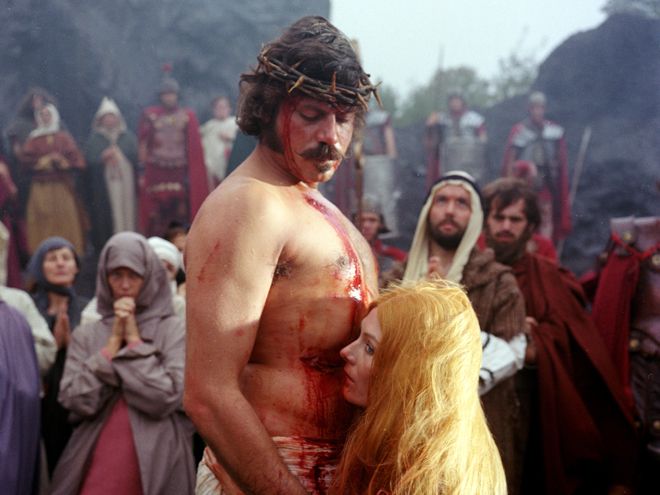
Are the major studios becoming more approachable when it comes to acquisitions?
Some are. I think everyone knows the major untapped resource is Warner Bros. People would love to mine that catalogue. It’s one of the strongest and biggest catalogues in the world and also has a lot of British films from the 1970s and '80s.
We’ve done a couple of titles, most notably The Devils, which was an incredible film to be able to release. Despite our release not being completely uncut and only being able to do it on DVD and not Blu-ray, it was still an amazing title to get. Maybe one day the elusive uncut version will have its day on Blu-ray…
It’s a shame when you look at what the other studios are doing. Many (including Warners) are doing a lot of transfer work, creating very good 2K and 4K masters. If you look at what Powerhouse is doing – getting really good 2K and 4K masters from (predominately) Sony – most of them don’t require further technical work. It's doing great extras, but isn't having to spend crazy amounts of money doing work on the masters. And now those films are seeing the light of day whereas before, the only way to see them was on a low-quality DVD.
You’ve also licensed material from the BBC for several projects now. Are there any specific challenges in working with them?
The biggest issue you find with BBC material are to do with the clearances. The BBC are incredibly thorough, as they should be. When you’re talking about programmes that have got a lot of contributors and you’re dealing with estates, then there are a lot of costs that can come out of that.
Often, though, I think it’s less cost and more time. They get lots of enquiries, and there’s actually a very small team of people who have to answer them. The key is that you have to give them as much notice as possible. I’m sure they get bombarded by people, some more serious than others, but they have to address every single enquiry. You just can’t go to them and say, ‘Oh, can I get this?’ and the deal will get done in quick time. It's just not realistic to expect that.
It can certainly be frustrating. They’ve got an amazing archive, with great shows like Play for Today, Screen One, Screen Two as well as many great interviews.
One of the titles we really wanted to do was Nineteen Eighty-Four with Donald Pleasance and Peter Cushing, which we got as far as actually announcing. But, ultimately, the BBC couldn’t get it cleared. There were rumours that someone was considering doing a new adaptation of the book and that because of that the Orwell estate weren't keen to see the old version appear. It therefore couldn't be cleared and subsequently we weren't able to release it. It was a real shame for us and for customers who were really looking forward to it.
Part of me would love to go back to them about it. Another adaptation hasn't appeared so perhaps there's a chance this undoubtedly great film could see the light of day.
It reminds me of the situation with the ITV adaptation of The Woman in Black (1989). I’d heard a story that there was some sort of stipulation preventing the release of that on video, or whatever, in the UK while the stage production is till running.
Yeah, we went after that one, too. One of the members of my team, she loves all of that ghost story stuff. She was constantly banging on about The Woman in Black. “How come it’s never been out?” “It’s really amazing, we’ve got to do it.” She was a huge fan, and we were keen to do it.
We went to ITV and spoke about it. Whilst the conversation was a positive one, it did indeed turn out that there was a restriction in place, perhaps for the reason you've mentioned and that pretty much ended the conversation. It’s a real shame, I think it’s a legitimate jewel in the crown for TV horror.
As well as being a missing Nigel Kneale title…
Exactly. Oh, I’d love to go back to some of those. Obviously, we did releases of The Stone Tape, which is with another label now, and The Year of the Sex Olympics. The thing with …Sex Olympics, was that there was lots of talk about doing the colour version of it. There have been some amazing things achieved technically with programmes that have been filmed in colour but only been released in black and white. Doctor Who and Dad's Amy spring to mind.
The good thing is that the BFI is entering into a new stage of UFH [Unlocking Film Heritage], and it is very much TV-focused. I’m really hoping we can get in on that from a DVD/Blu-ray perspective. The focus is more about transferring material from tape formats but if we can get in on the press and awareness around it then that would be great. We already have some strong TV titles on the horizon which is really exciting.
Another big title that's missing jewel is Ken Russell’s Strauss film, Dance of the Seven Veils, which the Strauss estate has always taken issue with (since its first broadcast in 1970) and hence it's never had a release. There might well be light at the end of the tunnel though. We obviously wanted to get it for our release The Ken Russell Collection: The Great Composers, but it’s just totally off-limits. But there’s been some movement around it, so I think that it will actually materialise at some point in the not too distant future.
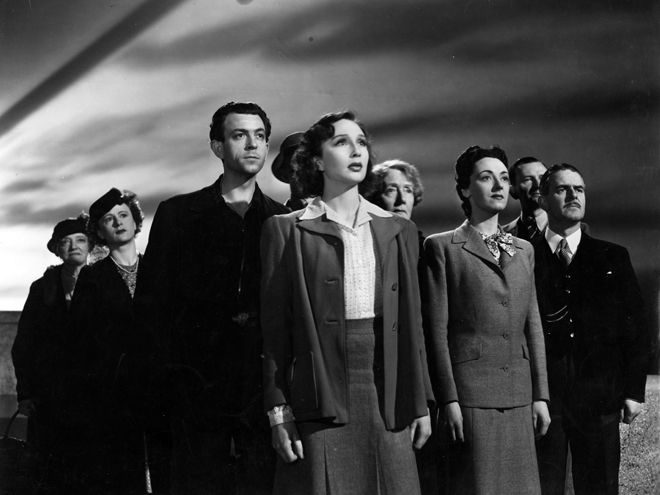
How beneficial is it having restoration people in-house?
It's very good. It's interesting, we've just released They Came to a City, which is one of the forgotten Ealing films. We did a lot of it in-house. We did a 2K scan of that film at the BFI National Archive, from the best surviving element. We did all the grading in-house as well. And then R3Store Studios did some work on it.
So there were a lot of people involved, but it saved a lot of money – compared to doing it externally it was thousands of pounds less. And that's when it becomes worth doing. You want the films in the best possible shape, but you've got to be realistic.
How highly does the BFI value the booklets that accompany its Blu-rays?
It's an interesting evolution from titles 10, 12 years ago that didn't even have booklets, or maybe had a four-page insert with one essay. Now you're looking at doing 32-page, 40-page booklets, so we really have got to a different place. But I think they are important, particularly on certain films that require a lot of context. When you do Derek Jarman you're doing a bespoke boxset; you do an 80-page book with it. Those films need context: how they were made, when they were made, why they were made… how the hell did they come about? The whole history, the whole evolution of him as a filmmaker, you can't sum that up in 28 pages really.
What are the pros and cons of acquiring pre-existing material to use as bonus features as opposed to generating brand-new content?
Obviously we can include a lot of archive material that we own the rights to, and if we can do it internally it's a negligible amount of money.
There's a lot of stuff that we own the rights to, things like the Central Office of Information (COI) catalogue, British Transport Films, the Mitchell & Kenyon collection, and a lot of those things do make nice extras, such as the COI films on When the Wind Blows, for example.
There's a responsibility the BFI has to publish work that's held in its National Archive. And BFI Player has been fantastic for that, because it's a great way of publishing a lot of material through the Unlocking Film Heritage programme and all the stuff that got digitised for that.
So we have all these things that have been digitised, but we just can't release DVDs and DVDs and DVDs of them, because they won't sell enough and it's a huge amount of work.
They're great as extras on releases, and a lot are on BFI Player, often for free. We have a responsibility – this material shouldn't be locked away where no one can see it.
We're lucky that we can use the Guardian Lectures and other on-stage events recorded at the BFI Southbank. On the Woodfall set for example we have an audio interview with Albert Finney from the 1980s which is great to be able to include. There’s also a big, 50-minute panel discussion about the whole history of Woodfall and its influence chaired by Danny Leigh [senior curator of fiction at the BFI National Archive], with [playwright] Jezz Butherworth and actors Tom Courtenay, Rita Tushingham and Joely Richardson.
Our recent Blu-ray release of Bergman’s The Touch includes a 72-minute interview with [actress and frequent Bergman collaborator] Liv Ullmann that was recorded on-stage at the Southbank. Okay, so she’s not actually in that particular film, but it’s an interview with one of the greatest actresses of her generation and someone who knew Bergman better than most. It’s also something that most people won't get to see, particularly those outside of the UK, so I thought, why not put it on the Blu-ray? It certainly doesn’t hurt anyone to include it.
If it had been somebody else who had come to us saying that they had this interview with Liv Ullmann and they’d be willing to let us have it for, say, two grand, then I wouldn’t have bothered, because I didn’t have that sort of budget to spend on an. But when it’s completely gratis? There’s no good reason not to include it.
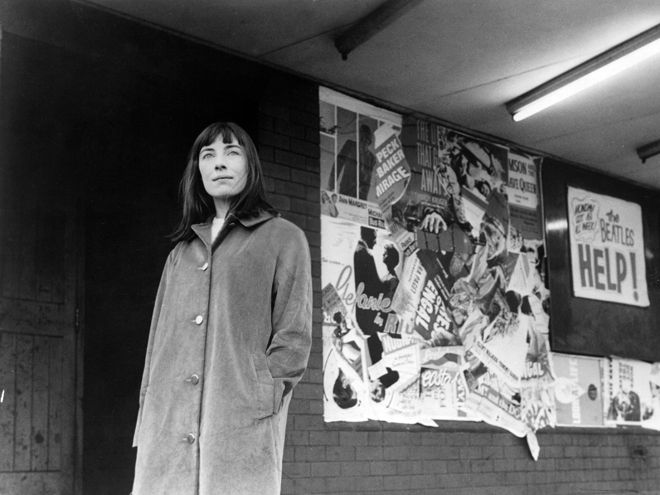
I presume you have a good handle on the schedule for 2019. Have you started planning for 2020 yet?
Not as far as that. There are often ideas about what's going to be happening in-venue [at BFI Southbank] quite far in advance – and I'm all up for knowing what those things are going to be in advance, so I can think about, okay, so if we're going to do a celebration of black British cinema or something, let's start thinking about what we can do with that.
When you're talking about things that might be big archive projects, a film that might be restored, my first question is do we have the rights to do a home entertainment release. I'm up for films being restored, obviously, but I'd like us to have the rights to release it, rather than we restore it, then deliver it to someone else and they release it. I'd much rather it stayed within the BFI's own output.
Woodfall-related, we're looking at potentially a follow-up collection. I didn't want to call this Volume One, because you're committing to doing Volume Two, and we haven't actually licensed the titles.
We're in conversation with Woodfall, which is in turn in conversation with, well, predominantly MGM. So I'm thinking about that and if we could do, in 2019, a legacy release really. I don't think you can go wrong with the films; they're fantastic.
Red White and Zero, which you might notice is not in the collection, we actually have the licence for, so we are going to do it later this year. And we felt that, while it is a Woodfall film, it's not like anything else in the collection. It's portmanteau. You've got the involvement of Zero Mostel, who had nothing to do with Woodfall specifically, and director Peter Brook, who also wasn't a regular collaborator.
I don't think this really sits in the boxset quite as well as the other content, and Woodfall was happy to see it get a separate release. If you plonk it in that boxset it does stand out as being not quite… it doesn't quite fit.
Are your release dates set in stone?
It's difficult. I think we're always up against it. I loathe moving release dates, from a fan point of view and from a retailer point of view.
I remember a few years ago we had a lot of things moved back. Wages of Fear went back extensively. That was mainly to do with the licensor doing a 2K master and then announcing that it was going to do a 4K restoration from the original nitrate. If it was a choice between doing a new 4K restoration that also ended up being a longer cut, I thought it was worth the wait. And I know the delays annoyed people.
I think we're in a very unique moment right now in the industry, where it's more imperative than it's ever been to do definitive releases. Because just how many more license periods are there? If you license a film for five years, for seven years, if you're licensing that now, then what's the industry going to look like in the future? Is somebody going to want to license it for another seven years or even another five years? Are they really going to do another release better than what's already available? Yes, possibly – if we're talking about doing 4K on certain films – but for most of what we do that's not really relevant.
I'm presume you're keeping an eye on the 4K Blu-ray market?
You've got to keep an eye on it. I think there are only really a couple of titles in our catalogue that it applies to, but you've got to keep an eye on how it's doing generally. On what other indie labels are doing.
We've had a couple of people approach us about titles where they've got a brand-new 4K master and they want to know if we're interested in doing a 4K release, but a couple of the films they asked about, I was like, 'That would be financial suicide.' In a way I'd be kind of interested, but only purely as a film fan. It's an interesting idea, but it would be a bad business decision.
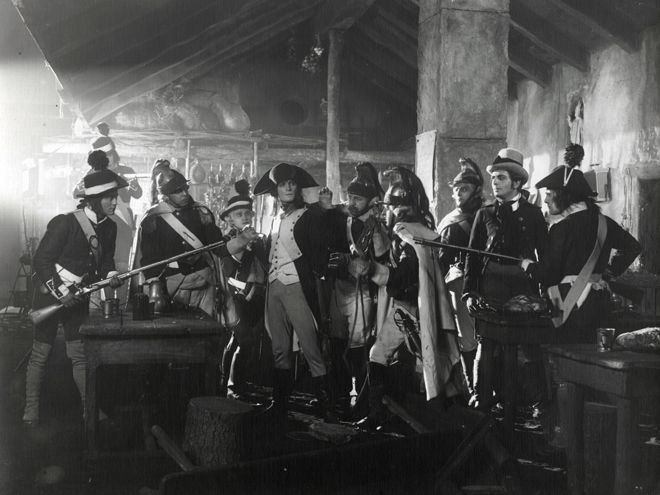
CultFilms has crowdfunded its upcoming 4K Blu-ray release of Suspiria...
I think the BFI are somewhat restricted in regards to that, as a registered charity. You're already spending public money.
We did look at it before, on a couple of things that we knew, if we did them, would be very expensive to do. Particularly getting new scores commissioned for silent films; things like that are very expensive. We've done that on marque releases like Napoleon, Shiraz: A Romance of India and The Epic of Everest.
One thing we can look at more, potentially, is cost-sharing deals with other labels for other territories. We have done that before. Psychomania, which we did here and Arrow did in the US. Symptoms, which Mondo did in the US.
We're going to be releasing Terence Davies' Distant Voices, Still Lives on Blu-ray, which will be a new 4K restoration. Our technical team are reviewing the materials and have already had some scans done on what we hold. Arrow are doing it in the US so we're cost-sharing with them, so we can do a new restoration and we can both save money on it. It is set for release in October both here and in America.
You touched there on a couple of titles released under the Flipside imprint. How are things going on that side of things?
The last ones we did were Long Shot and The Orchard End Murder last year…
I really enjoyed The Orchard End Murder, there’s just something about it.
It's pure Flipside isn’t it? Internally, there were people asking why we were doing it. My response was that that you can’t pretend that these films weren’t made in this country. You can’t pretend that this actually didn’t happen, because it did. And it’s actually not a badly made film. Yes, it’s of a type. It’s quite salacious. It’s an unpleasant film, a grubby film in a way. But it’s also well shot and well edited and it represents a very specific moment in British film history.
There, again, was a film that needed some context: it needed the booklet and the extras. And we had a female voice writing about the film, which I think was important. I didn’t want that kind of film to be dominated by male voices. Whilst it was a little bit of a risky one to do, I think it was important and I'm glad we did it.
We also did Long Shot which was great. We submitted it to Bolognia [Il Cinema Ritrovato DVD Awards 2018] and it’s in the finals. We submitted five titles and got four in the finals, which is great! We’ve got Long Shot, Shiraz, Every Picture Tells a Story: The Art Films of James Scott - which is great to have in there – and German Concentration Camps Factual Survey.
As for the future of Flipside, there are a few titles I’m looking at, a couple that I think will work really, really nicely. They’re not in the schedule at the moment because we’re just inking the deal. There’s another release I’m looking at for around Halloween-time, which is down the lines of folk horror type stuff. It’s basically a double bill, sort of like we did with Duffer and The Moon Over the Alley. Almost feature-length kind of things; that sort of 40-, 50-, 60-minute length where you need something else to bump it up really. But there’s one film that has not been published anywhere yet, and we own the material. And another film that, I think, is on Player, but hasn’t really been done very well. And we have all the original film materials.
The thing with Flipside is, it often takes quite protracted negotiations. Some of the films are quite weird, they’re tied-up with some odd rights. It often takes a lot of digging, a lot of research trying to find out who actually owns a film. People claim this and claim that. You know what it’s like: they say they have the rights, but do they really?
But the next one I do, I really want it to be something a little bit special. To be a really strong title. Because again, it’s a bit of a balance with Flipside. You can do a lot of smaller titles, but you also need some of those bigger ones just to give it a push. And I think we did that brilliantly with the really good little mini-run we had of Beat Girl, Expresso Bongo, Symptoms and Psychomania. I mean, what a cracking four in a row that was. Psychomania and Symptoms are two of the most successful Flipsides ever.
It’s definitely still got legs in it, absolutely. People want it. But it’s about finding the right films. And, of course, there are less of those kinds of films now, because they’ve been done. And not just by us. Other labels like Arrow have done films that would absolutely sit in the Flipside strand.
But I think we can do something with a couple of titles. I like the idea of the folk horror thing, I think there’s a big interest in that. When we did the folk collection Here’s a Health to the Barley Mow on DVD a while back it amazed me how well it sold. Ridiculous. I thought we were going to do 500, maybe 600 copies in the first year, something like that. But it did a couple of thousand! There were all these people on Twitter saying, ‘I saw this weird thing, it’s insane’. Because it’s proper Wicker Man stuff; strange people doing some pretty weird stuff. But it’s great and it did really well. It really surprised me and I think it showed that there is a real audience for that sort of material.
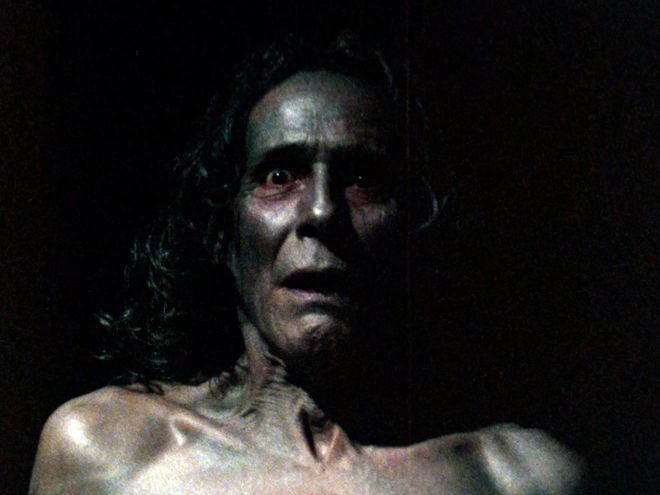
You’ve enjoyed a fair amount of success with TV horror over the years with titles like Schalcken the Painter and, along similar lines to what you’ve just been talking about, Robin Redbreast…
Yeah, it’s that sort of stuff. I think when you look at some of the films that have cropped up in recent years, people have explored that area quite a lot. Look at Ben Wheatley's A Field in England and the end sequence of Kill List. People are always looking back at the history of this country. And those traditions are very unique to this country.
So, like I said, we’re trying to do something along the lines of witchcraft, folk horror sort of stuff. It’s something I think would be really cool to do around Halloween. A couple of the films on there, they’ve been screened in East London film clubs and they’ve done really well. They’ve definitely got a bit of a cult following.
You’ve already mentioned the Flipside releases of Beat Girl and Expresso Bongo. Did those titles cause any particular problems?
Not really, they were relatively straightforward. Expresso Bongo was part of the Cohen Film Collection and we worked with them before on The Day the Earth Caught Fire. They Came to a City is licensed from them, too, as is Daughters of the Dust. We’ve got a good relationship with them. They’ve got some great titles in there, it’s a very eclectic catalogue, with a weird mixture of stuff. There’s some great genre stuff, but then they also represent the Merchant Ivory films which are a long way from the Flipside!. They’ve got some really interesting gems though.
Beat Girl, as with a lot of Flipsides, kind of came about in an odd way. It wasn’t one we were totally aware of and then it was one of the films submitted, and selected, for Unlocking Film Heritage. We did a deal for it – and we got some great extras. I’d seen the Christopher Lee short film that’s on there [Cross-Roads, 1955] before a screening of another of his films here at Southbank and had always thought it would be great to include on something as an extra. So, when Beat Girl came along, it was perfect. I was really happy about that. And we interviewed actress Gillian Hills, as well. It was fantastic. Really good.
So, yeah. Fingers-crossed. More to come…
Excellent. Going back to TV horror quickly, do you still hold the rights to the BBC Ghost Stories for Christmas? And if so, is there any scope for revisiting any of those in HD seeing as they were shot on 16mm?
They’re still with us at the moment. We did look at one, which I think was A Warning to the Curious which the BFI National Archive holds film elements for. I don’t know if there’s anything pre-print, just a print.
Unfortunately, so much of the materials for those films no longer exist, so we don’t hold very much on that series. I know there’s that one and, obviously, Schalcken the Painter, which we were able to do as a Flipside Blu-ray. I remember looking into whether we could do something similar with A Warning to the Curious at the time. But because it’s the only one, it’s a bit of a tricky one to put out there. It’s only 45-minutes, so what else are you going to put on the disc that really fits with it? And would the BBC even allow us to put other things alongside it?
That said, the BBC did a lot of that kind of supernatural, ghost story stuff. So there are opportunities with other things they have of a similar ilk. And we’ll be renewing the ones we already have from the BBC, we never want to let those go. They do very well for us and, consequently, for them.
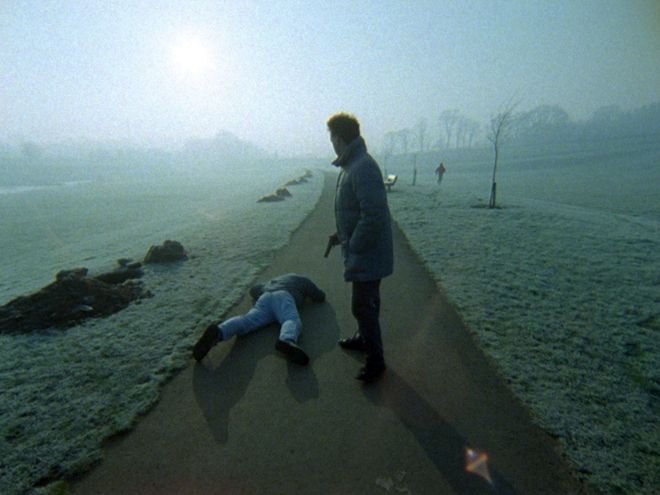
The Dissent & Disruption: Alan Clarke at the BBC [1969-1989] boxset deservedly won a lot of acclaim. Has that set a high benchmark that you now feel you always have to keep trying to match?
I think if we did anything along those lines again, another career retrospective set, then we have to go all-out. We’d done other things prior to that that hit some big heights and included pretty much everything we could get hold of. The Robbe-Grillet set needed a lot of extra context. With the Cassavettes discs [Faces, The Killing of a Chinese Bookie, Opening Night, Shadows and A Woman Under the Influence], we worked hard to get stuff to put on those. We always endeavour to do the best release possible.
But Clarke was just one of those incredibly unique things. I don’t think there’s really anybody in television or film who was, prior to that release, so bizarrely ignored from the point of view of published work. The stuff Paul Greengrass did for the BBC and Channel 4 has been released. Mike Leigh’s BBC stuff had a whole boxset. There’s a boxset of Alan Bennett. So it’s weird that none of Clarke’s work, aside from bigger titles like Scum and The Firm, had really been exploited. These are significant films in the history of the BBC, written by very, very good writers, household names of the time, who went on to big things. The quality is ridiculous, it’s so consistent.
I think Clarke was a genuine one-off in terms of having that much material that had never been exploited before. But there are definitely collections that could still be done. Whether some of that could be done on Blu-ray? I don’t know. But there are definitely great one-off plays by a variety of filmmakers…
The one I would really like to see done, which might prove tricky as he wrote for both the BBC and Channel 4, would be a comprehensive Dennis Potter collection…
Absolutely. Yeah, he’s probably one of the few that you could conceivably give that sort of treatment to. And, again, he’s got a lot of stuff that’s never been published. I think if you did something like a major Dennis Potter release, people would expect it to be like Clarke Mk 2. Because he’s right up there; he’s basically the writing equivalent. So in a situation like that I think there would be obvious comparisons and you would have to try to match it or at least get close to it.
But I’d really like to see more of the BBC Screen One, Screen Two, Play for Today stuff done on Blu-ray. There’s definitely an opportunity where there’s the right material. But I’d love to see some of that stuff done on Blu-ray and looking really good – and there’s no reason why it shouldn’t as a lot of that stuff was shot on film.
Are there any particular dream projects that you'd like to work on?
For me, the one that stands out is Elem Klimov's Come and See. It's one of the most astounding films ever. The sound design; the look of it. It's like nothing you've ever seen. The two-disc DVD was good, but technology has moved on.
I have enquired about it before. But as with a lot of Russian films, there are rights issues around it. I wouldn't be surprised if Criterion do a UK release of it – and I've gotta say, I'd be delighted if they did, because they would do it superbly well. There are some great Russian films that have never seen the light of day here. I know [Andre] Tarkovsky's finally had his moment with proper releases, but there's a lot of great Russian cinema, and I'd like to do more of it – they've got some amazing science-fiction, and some very good war films.
On a personal level, I’d like to see a couple of my dad’s [screenwriter Hugh Stoddart] films being released. One of them, a film called Remembrance, I’m trying to get screened at the Southbank as part of the Working Class Heroes programme. I would love to do that. It was Gary Oldman’s first film, has got Timothy Spall in it, and Brian Eno did some of the music. It’s also one of the first films commissioned by David Rose at Film Four in 1982. I think there’s a lot of good about it, beside the fact that my dad wrote it. I would like to do it from a personal perspective, but also because it’s a genuinely important film.
Lastly, how do you see the UK home entertainment landscape panning out?
It is shrinking. Nobody can deny that. There are labels who are faring better than others. And if you look at those that are doing well, there's a consistency to what they're doing. They're doing deep-catalogue and they're doing it to a very high standard. So I think, yes, it's shrinking, but we're in a strong position, as a lot of these other [independent] labels are.
We're all trying to do the definitive editions of the things we're releasing. And I mean worldwide definitive editions, really. Us doing When the Wind Blows. Arrow doing The Thing... It's all about upping the ante and doing it to the best possible standard.
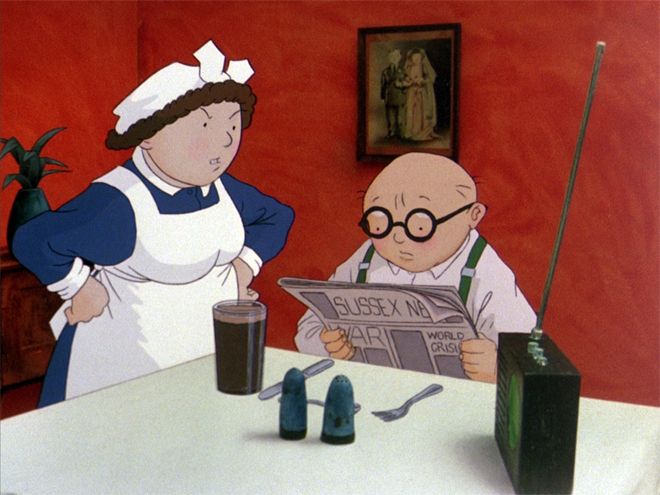
An alternate, shorter version of this interview first appeared in Home Cinema Choice #286, June 2018.
 |
Home Cinema Choice #351 is on sale now, featuring: Samsung S95D flagship OLED TV; Ascendo loudspeakers; Pioneer VSA-LX805 AV receiver; UST projector roundup; 2024’s summer movies; Conan 4K; and more
|
